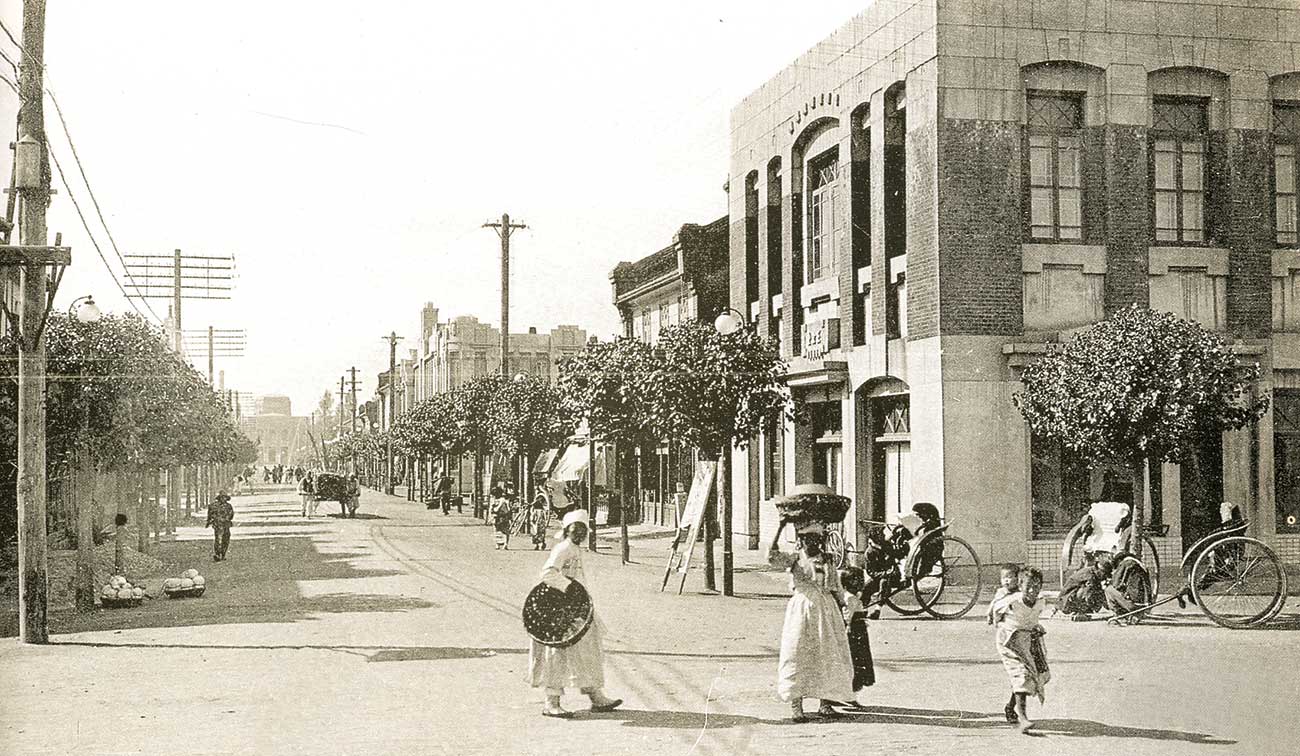When I was about eleven years old, I announced to my father that I would sell a giant bag of our rice (about eighteen liters’ worth) to help someone. I remember even now carrying that enormous bag of rice on my back and walking a distance of twenty li (8 kilometers).
I should have had a rope or a cord to make it easier to carry such a large bag, but I just carried it on my back. My heart was palpitating. [Father laughs.] My heart was beating fast, and I had to go, huh
Huhuh! Many times. I still remember that, even now. I’m sure I will not forget it for the rest of my life. Such experiences allowed me to be in a position to go the way of the providence.
Our family was not that poor at that time. We were keeping bees then. We had several hundred beehives. In rural areas, there were places where people had no light because they had no oil for their lamps.
I could not give them gasoline, so I gave them candles made from beeswax. At least then they could have candlelight. After doing that, though, my heart was still not at ease.
So I broke open most of the beehives to make beeswax and distributed it to all the villagers. Do you have any idea how much money that was worth in those days? I was only a child at that time; how could I know? My father scolded me severely over that. [Laughter]
Centering on our family, there was a kind of relationship with our neighbors in my home village. Did only the Moons live in that village? No. People with other names, such as Lee and Kim, also lived there.
As it happened, though, the elders of the Moon clan tried to exclude other people because the majority of the people in the village were Moons. If, however, my father or my grandfather would not lend anything to someone, I would always take it and give it to the person.
When one of my poor friends brought a lunchbox with only cooked millet or wheat in it, I could not eat my lunch by myself. I exchanged lunch boxes with him and ate his lunch.
Furthermore, if one of my friends’ mother or father was sick but did not have the money to go to the hospital, I went to my parents and begged them in tears to pay so that they would be able to go to the hospital. I asked my parents, “Will you pay or not?” If they said no, I would tell them I was going to sell this or that thing and to please understand that I needed money.
If you go to a Korean rural area, they often make beombeok rice cake [made of mixed grains with the consistency of thick porridge] using a steamer. They put the steamer in a high place with a branch on it so that dogs or cats can’t touch it.
When winter comes, the beombeok rice cake is allowed to freeze. If you put that frozen rice cake under the lid of a rice cooker and simmer it there, it becomes very soft and tender. I took our beombeok rice cake and gave it to the village children. We made enough to eat for a month, but it was gone in a few days. I was scolded because of that, too.
I helped many friends and others. In doing so, I become very well acquainted with people. Not only with the people in our village, but with people within a few kilometers of my house. I was well aware how various people lived.
When I was twelve years old, I was also good at gambling. After three games, I would win all the money. After the first game, I might win 120 won. While we were under Japanese rule, 120 won was a large amount of money.
At that time, university tuition was 80 to 120 won a year, and a cow sold for seventy to eighty won. A bag of rice was 1 won and 10 jeon. For the poor, miserable village children, I made a final bet and used the money to buy a container full of starch syrup, all of which I gave to the children to eat.
I had a very selfish uncle. There was a melon field beside the road where the village children often went. All the children were crazy about the melon smell. My uncle made a lookout shed so that he could look over the melon field. He also never picked even one melon for them.
So, one day I said, “Anyone who wants to eat melons, come with a sack.” When midnight came, I asked them to pick all the melons. [Laughter] I then hid the melons in a field of bush clover and told them when to come and eat them.
The children came even before daylight and ate until their stomachs were full. After that, there was a big commotion. I was the only one who would do such a thing. [Laughter]
Furthermore, I had an agreement with my sisters’ husbands that whenever they came, no matter how much money I took and used from their wallets, they would accept it. They asked me to come to their homes often.
When I visited them, I had already made that agreement with them, so I was able to take money whenever I needed it. I bought candies and grain syrup for the poor children in the village. This was not a bad thing to do.
A stubborn personality
If I started crying, I kept on crying for more than an hour. My nickname was the all-day crying baby. They gave me this nickname because I would cry on and on. Old men and women in the neighborhood all came and watched me cry.
When I cried, I was so noisy that I woke up people sleeping throughout the whole village. When I cried, I did not just sob; I cried continuously as though something serious had happened. My throat swelled, my voice became husky, and later I completely lost my voice. [Laughter]
Furthermore, I did not just sit there crying. Because I jumped up and down so much when I cried, I cut myself and started bleeding, and the room became all bloody. You can now understand what kind of child I was.
Furthermore, I never gave in. I would not give in even if my bones broke. I would not give in even if I died. Before I reached the age of discretion, in other words, before I reached my teens, if my mother scolded me for something that was her mistake, I always replied, No!
Even if she told me that she was right, I stood up to her and argued with her. Isn’t that incredible? Once, I was spanked so many times that I fainted, but I still refused to give in.
I was like that to my grandfather as well. I would advise my grandfather. When he tried to teach me a lesson, he was holding his [tobacco] pipe. I asked him, “When you scold your grandson, should you be doing so with a pipe in your hand? Is that the tradition of our clan?”
In that way, I threw my grandfather’s words back at him. What could he say? Initially, he underestimated his small grandson, but later he said, “You’re right. I should put this away.”
In ways like this, by the time I was twelve years old, I could win over my grandfather, my mother, and father, and my brothers and sisters.




